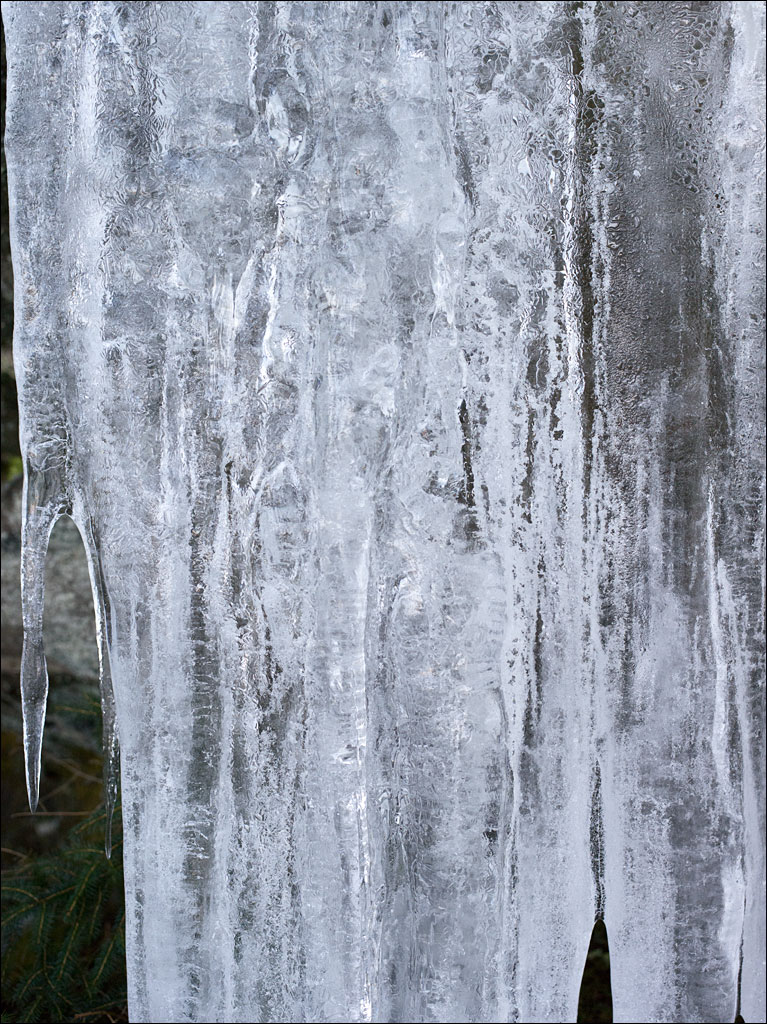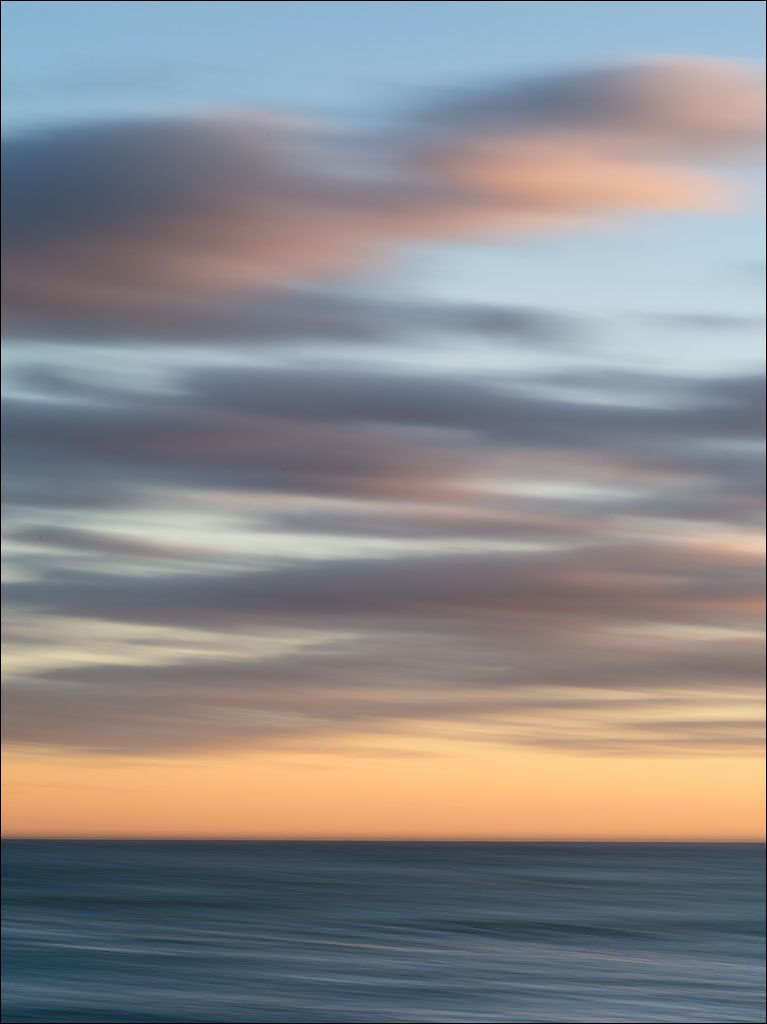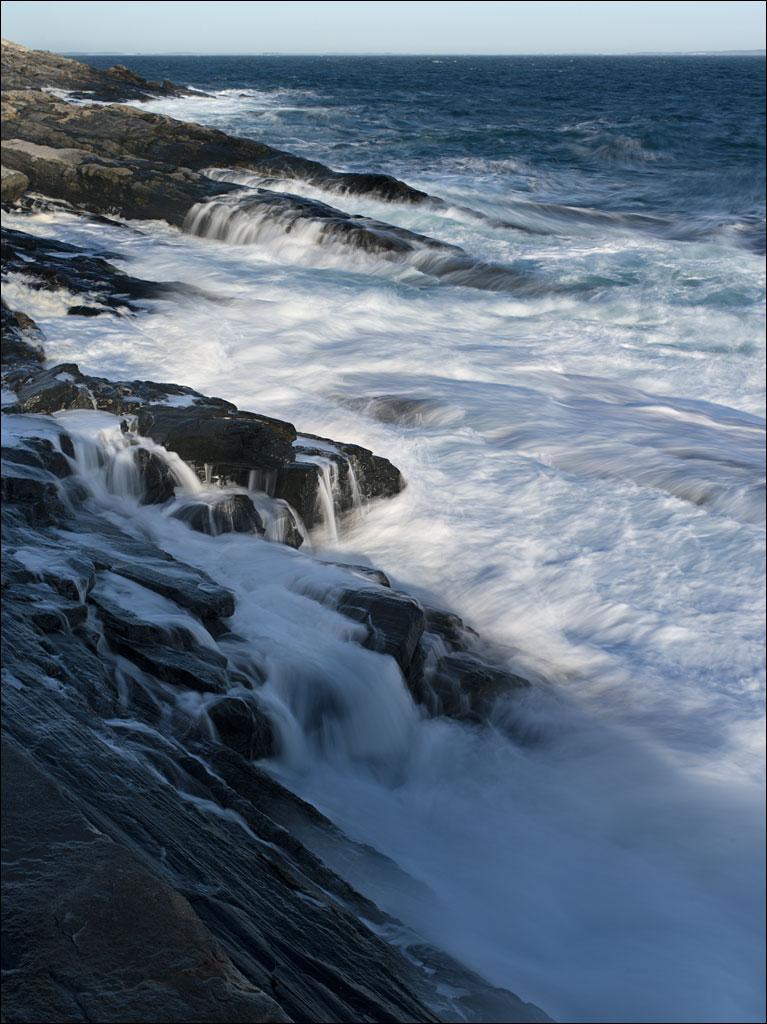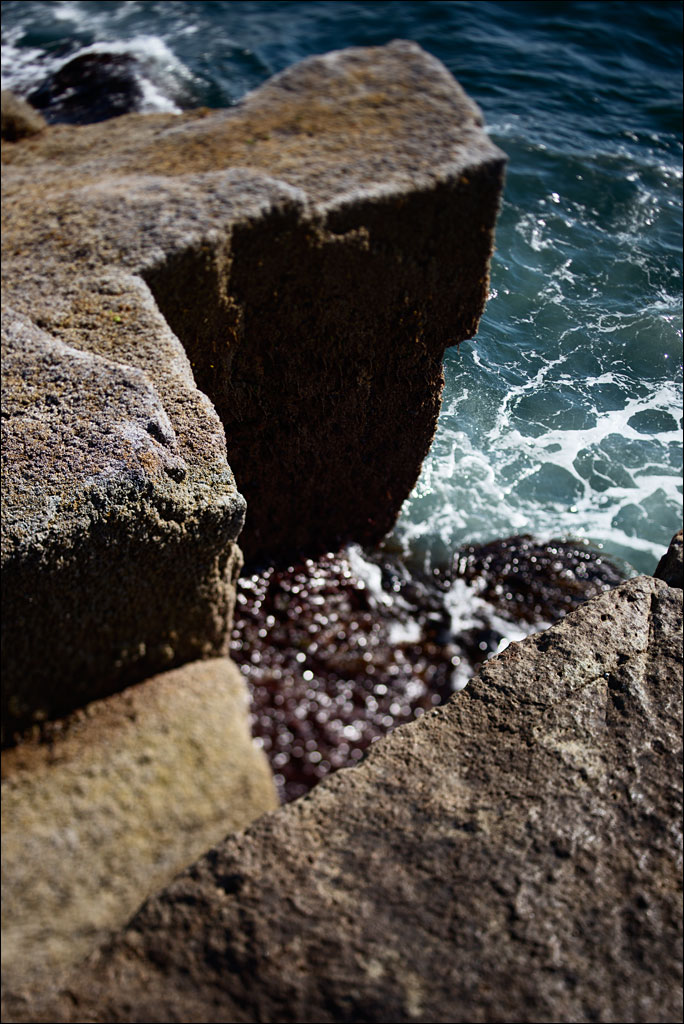 The rocks at Schoodic Point in Acadia National Park. One of the most interesting things about photography is the ability to present the world in a way that a person could not perceive naturally. When a group of objects are in focus, when they appear sharp, it is usually because they are all the same distance from the observer. That does not need to be true for a camera (no Photoshop gimmick here). Click on the image for a larger view.
The rocks at Schoodic Point in Acadia National Park. One of the most interesting things about photography is the ability to present the world in a way that a person could not perceive naturally. When a group of objects are in focus, when they appear sharp, it is usually because they are all the same distance from the observer. That does not need to be true for a camera (no Photoshop gimmick here). Click on the image for a larger view.
Category Archives: Maine Coast
Reversing Falls
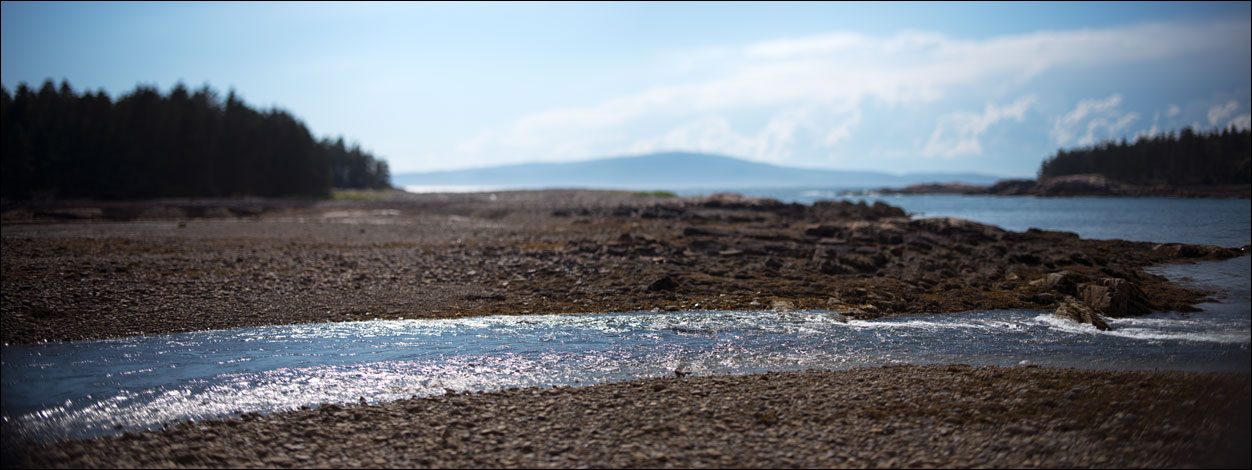 Reversing falls are caused when the water level between one water body and the ocean is different at high and low tide. West Pond on Schoodic Peninsula in Acadia National Park has a reversing falls. This image shows low tide where the land on both sides of the falls, the stream in the foreground, would be submerged at high tide. The trees at the left are on Pond Island, which marks the extent of the high tide. Mt. Desert Island is at the horizon. Click on the image for a larger view.
Reversing falls are caused when the water level between one water body and the ocean is different at high and low tide. West Pond on Schoodic Peninsula in Acadia National Park has a reversing falls. This image shows low tide where the land on both sides of the falls, the stream in the foreground, would be submerged at high tide. The trees at the left are on Pond Island, which marks the extent of the high tide. Mt. Desert Island is at the horizon. Click on the image for a larger view.
Sea and Land
Wildlife is (not) cute…
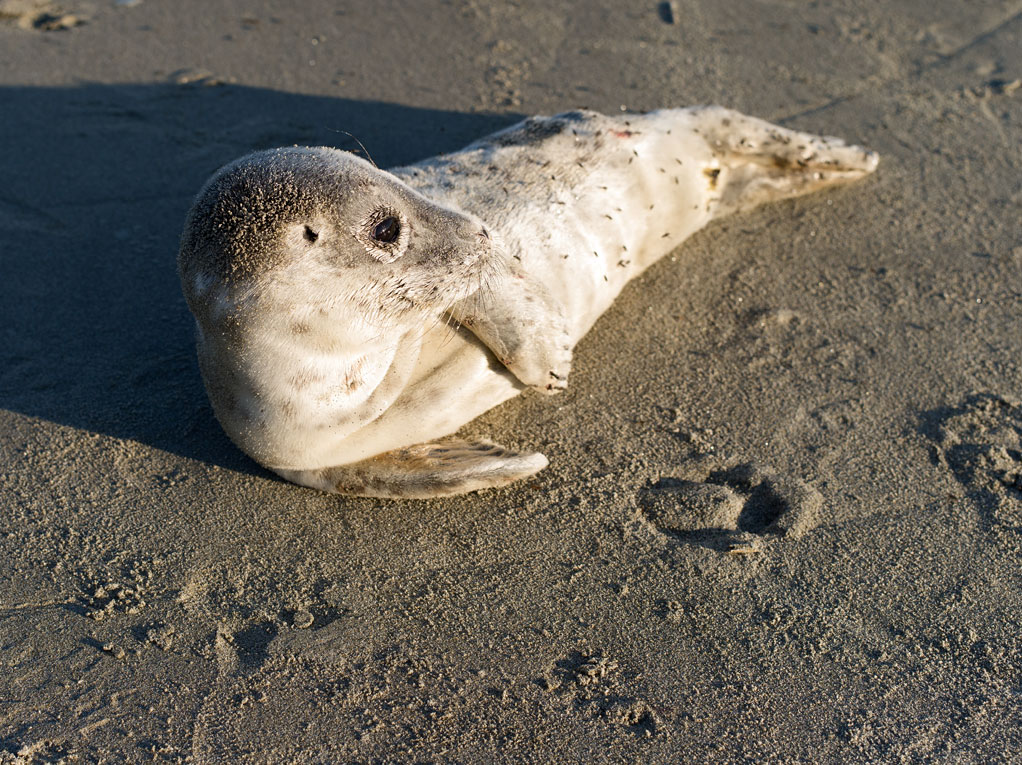 Wildlife looks cute, like this harbor seal pup, but they will not think of you as cute. Marine mammals are found along the coast of Maine. If you think an animal is injured or abandoned, call Maine Marine Animal Reporting Hotline at 1-800-532-9551. Do not approach the animal or try to handle it—not only is it illegal to handle marine mammals, but also they will bite. Appearances can be deceiving; mothers can leave their pups on a beach for up to 24 hours. Click on the image for a larger view.
Wildlife looks cute, like this harbor seal pup, but they will not think of you as cute. Marine mammals are found along the coast of Maine. If you think an animal is injured or abandoned, call Maine Marine Animal Reporting Hotline at 1-800-532-9551. Do not approach the animal or try to handle it—not only is it illegal to handle marine mammals, but also they will bite. Appearances can be deceiving; mothers can leave their pups on a beach for up to 24 hours. Click on the image for a larger view.
Horizon
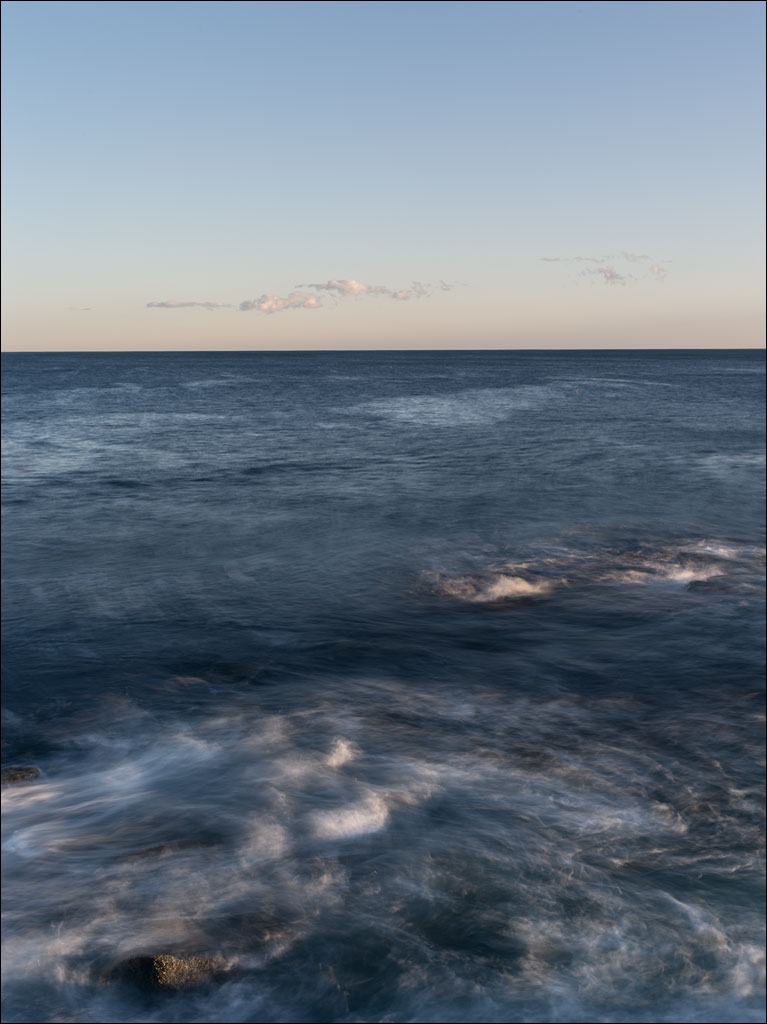 The clarity of the atmosphere in the winter is striking. The horizon, that line dividing the sky from the water, is like a knife edge—a demarcation of our world. There is a magnetism to that unknown over the horizon. Yet, the unknown below the surface of the water ties us to the land. Click on the image for a larger view.
The clarity of the atmosphere in the winter is striking. The horizon, that line dividing the sky from the water, is like a knife edge—a demarcation of our world. There is a magnetism to that unknown over the horizon. Yet, the unknown below the surface of the water ties us to the land. Click on the image for a larger view.
Tracks
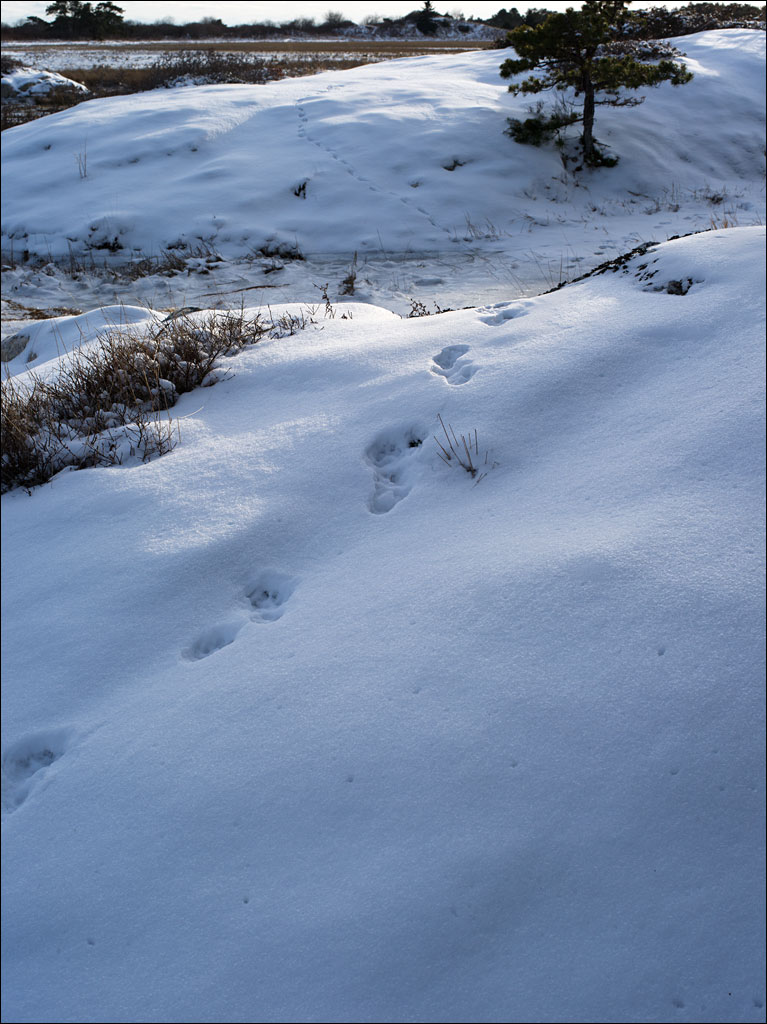 Locard’s exchange principle, named after the French forensic scientist, can be summed up simply—every contact leaves a trace. No matter how small nor how transitory, our journeys leave something of us behind and carry away something with us. Every track, no matter if taken by a solitary traveler, is woven with those that came before and will come after. Click on the image for a larger view.
Locard’s exchange principle, named after the French forensic scientist, can be summed up simply—every contact leaves a trace. No matter how small nor how transitory, our journeys leave something of us behind and carry away something with us. Every track, no matter if taken by a solitary traveler, is woven with those that came before and will come after. Click on the image for a larger view.
Frozen
Winter Sunset
Winter Seas, Part 2
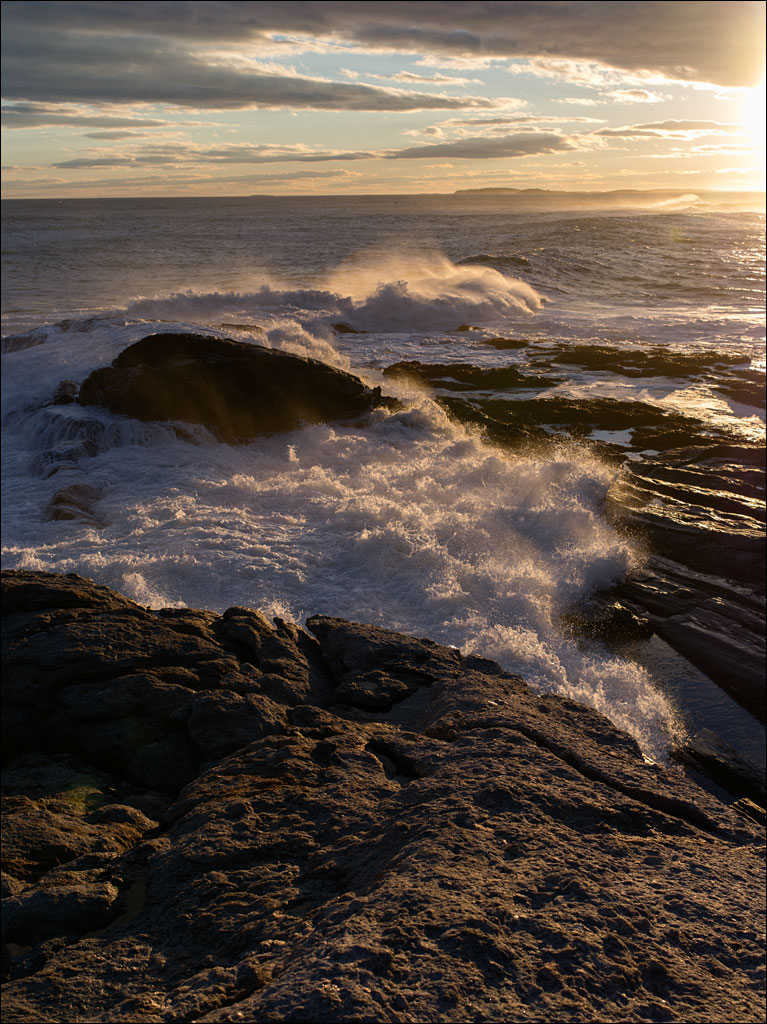 These rocks at Pemaquid Point can look very different in other seasons. Click on the image for a larger view.
These rocks at Pemaquid Point can look very different in other seasons. Click on the image for a larger view.


